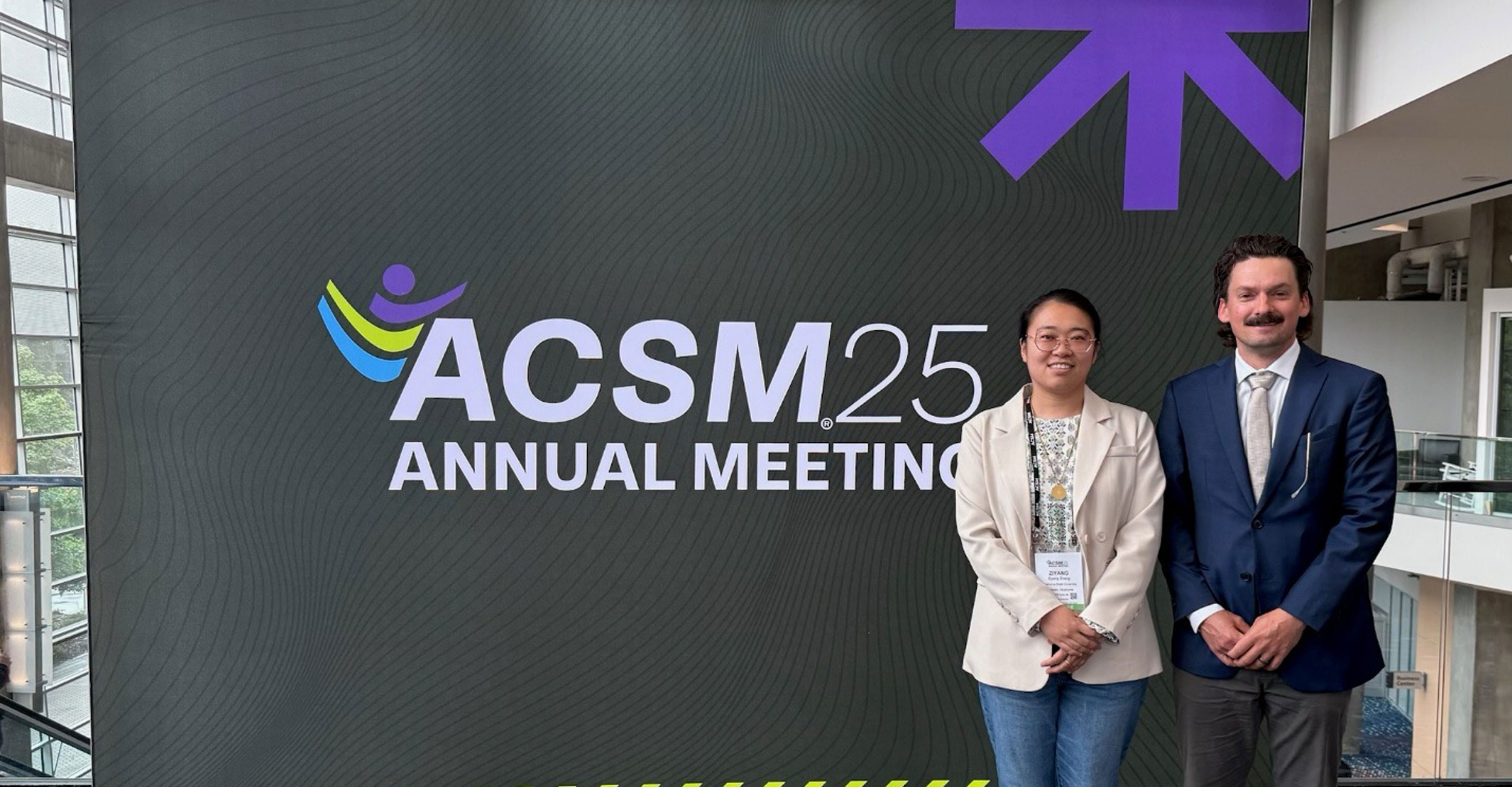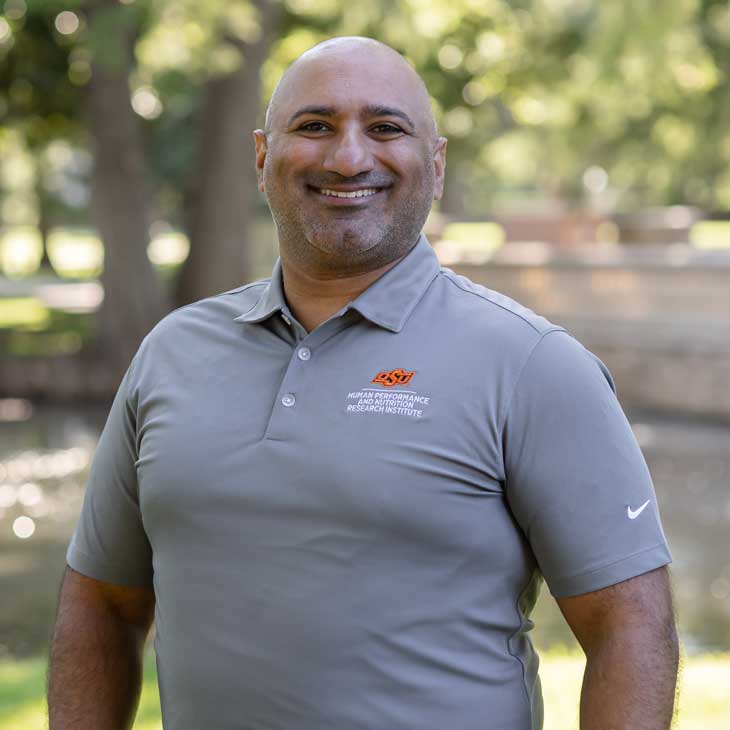
OSU researchers showcase human performance research at 2025 ACSM annual meeting
Friday, June 20, 2025
Media Contact: Sydney Trainor | Communications and Media Relations Specialist | 405-744-9782 | sydney.trainor@okstate.edu
HPNRI team presents cutting-edge findings; Boolani named ACSM Fellow
Researchers from the Oklahoma State University Human Performance and Nutrition Research Institute presented their collaborative research at the 2025 American College of Sports Medicine annual meeting, held May 27-30 at the Georgia World Congress Center in Atlanta.
The collaborative event brought together top scientists, clinicians and students from across the globe to explore the latest in exercise science and sports medicine.
HPNRI researchers contributed to several sessions and poster presentations, highlighting their work in areas such as gait performance, energy-fatigue states and neuromuscular coordination.
Dr. Collin Bowersock presented findings from his study, “Adjustable Stiffness AFO Enhances Gait Performance Compared to Traditional AFO in Individuals with Cerebral Palsy,” which focused on improving mobility outcomes for individuals with cerebral palsy through innovative orthotic technology.
“Attending ACSM and other scientific conferences is a great privilege and opportunity,” Bowersock said. “At ACSM, I met many new researchers who provided me with guidance on my upcoming research projects as well as career advice. I was able to catch up with former colleagues and rekindle those collaborations and celebrate those who have made big impacts in the field. I was also able to share my knowledge and expertise and give back to the field. I always find these conferences to be extremely motivating with a unique ability to refocus my efforts on improving the lives of all individuals, regardless of age, ability or circumstance.”
Dr. Ziyang Zhang, postdoctoral fellow, presented her poster, “Associations between sEMG-Based Muscle Coordination Change and Subjective Energy-Fatigue States in 5-Minute Walks,” which studied how changes in muscle coordination are linked to self-reported changes in mental and physical energy and fatigue under different audio interventions during short walking bouts. Her findings offer potential applications in personalized energy-fatigue monitoring and the development of human digital twins.
“Presenting at ACSM was an incredible opportunity to share our findings with experts in human performance and physiology,” Zhang said. “The feedback I received was both encouraging and inspiring, and I’m excited about the potential of this work to inform personalized energy and fatigue monitoring and digital twin development.”
Additional research was showcased from OSU scientists:
- Dr. Bree Baker — assistant professor of kinesiology, applied health and recreation
- Dr. Shane Hammer — assistant professor of kinesiology, applied health and recreation
- Dr. Michael Trevino — associate professor of health and human performance
- Dr. Jill Joyce — assistant professor of public health nutrition
- Dr. Ho Han — associate professor of community health sciences, counseling and counseling psychology
- Dr. Heontae Kim — assistant professor of public health
- Dr. Matthew Bird — HPNRI performance science coordinator
- Dr. Harshvardhan Singh — HPNRI Implementation Scientist

Achieving a career milestone, Dr. Ali Boolani, HPNRI associate director of research and strategic initiatives, was officially named a Fellow of the ACSM during the conference.
“I am honored to receive the ACSM fellowship,” Boolani said. “This is an amazing honor, and I hope that I can continue to serve the ACSM and scientific community in the upcoming years.”
This fellowship recognizes ACSM members who have demonstrated distinguished achievement in sports medicine and related disciplines, as well as significant service to the organization. Candidates for the honor must meet rigorous criteria, including multiple years of membership, documented scholarly and professional contributions, and endorsements from current ACSM Fellows.
Boolani’s research portfolio — spanning mental and physical fatigue, algorithmic and wearable development — has helped shape emerging conversations about personalized human performance. He had eight presentations this year at the ACSM annual conference.
His appointment as a fellow is both a personal achievement and a reflection of OSU’s commitment to advancing multidisciplinary research with real-world impact.
